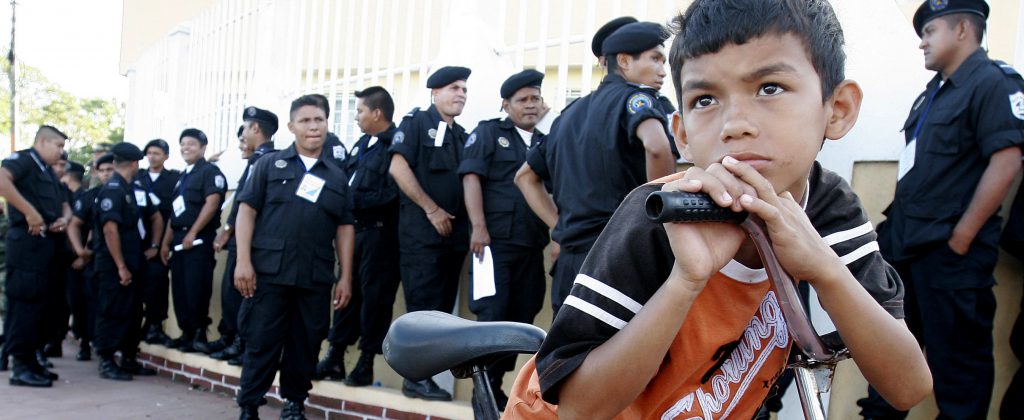
Systems Overload: Drug Laws and Prisons in Latin America
According to a new study, throughout Latin America non-violent drug offenders are being imprisoned, violating human rights and overloading the region’s prison system.
Displaying 517-528 results out of 531
Sort by
Layout

According to a new study, throughout Latin America non-violent drug offenders are being imprisoned, violating human rights and overloading the region’s prison system.

The report provides background on the distinction between police and military functions, and calls on the Obama Administration to stop encouraging other countries’ militaries to take on roles that would be illegal for the U.S. Armed Forces to carry out at home.

Waiting for Change documents the complexities and disappointments of the Obama Administration’s relations with Latin America in its first year. The report identifies an underlying trend toward greater militarization of U.S. foreign policy which spans Democratic and Republican administrations alike.

This report is in response to a request by TNI and WOLA to Mr. José Henrique Rodrigues, Judge of the Sixth Appellate Court of the High Court of Justice in Sao Paulo, Brazil, to put in writing the reasons for making a decision to overturn Brazilian case law in a case on possession of controlled substances

This report draws on interviews conducted by in-country experts with government officials, current and former police, representatives of international aid agencies, and civil society leaders in El Salvador, Guatemala, and Honduras.

This report finds that while the funds directed towards implementing the White Paper recommendations support commendable projects, the money is insufficient to resolve the long-standing labor problems plaguing the region.

WOLA’s plan for an overhaul of U.S.-Latin America relations gives the next administration important recommendations on how the United States can rebuild its standing in Latin America by putting relations on a new footing based on engagement, respect, and collective action on common challenges.

This resource guide offers attorneys, immigrant activists, policymakers and human rights workers the facts they need to understand the complicated and nuanced phenomenon of gangs in Central America and gang-related asylum cases.

In a little-noticed but disturbing transformation, U.S. foreign policy decision-making is moving from the Department of State to the Department of Defense.

A WOLA report addressing Central American youth gangs and related issues in human rights, effective policing, and prevention.

The August 2005 issue of Rights and Development, which highlights the MST’s struggle for land in Brazil, labor rights violations in Guatemala, the passage of CAFTA-DR, and recent labor news in Mexico and Colombia.

The October 2003 issue of CrossCurrents, which celebrates the creation of CICIACS in Guatemala and discusses WOLA’s civil society delegation to Colombia, Lula’s first year in office, prospects for a free trade agreement with Central America, and Cuba’s crackdown on dissidents.

Subscribe with your email to receive exclusive reports and expert research directly to your inbox every week.
(Your privacy is important to us; your information will be kept confidential and secure.)